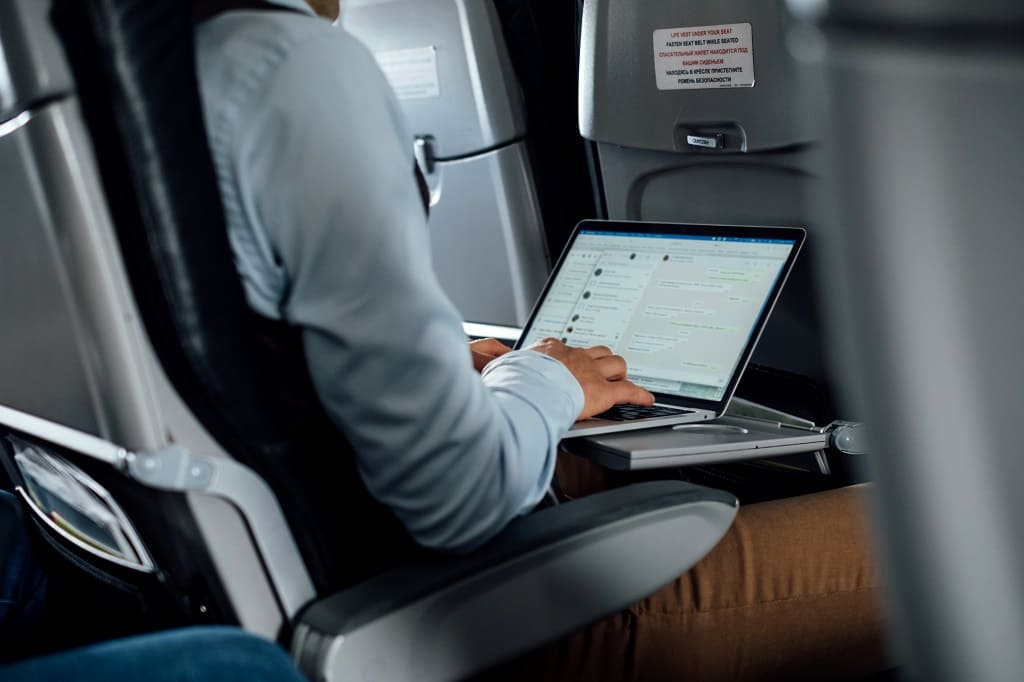How important is WiFi connectivity when choosing a means of transport? According to experts, more and more passengers value the possibility of accessing the Internet during their journeys, whether for work, leisure or just communication. In addition, WiFi networks also offer advantages to transport companies, such as greater operational efficiency and a better understanding of their customers’ habits. We will explain the keys to this reality below.
Never before have we had so many and so accessible options for getting around, whether for holidays, work, family travel or any other type of trip, the range of alternatives is wide.
Therefore, passengers will weigh aspects that go beyond price when making their decision. One of them is the possibility of having internet connection during the journey, which is highly valued for how it improves the traveller’s experience.
Indeed, according to this Icomera report, passenger transport companies must increasingly consider adapting to the changing needs of travellers. And network access is one of the main ones.
The same publication reveals that 134% more train passengers are connecting to their WiFi services since the pandemic.
On the other hand, beyond this, WiFi networks help companies in the sector to better understand the habits of their customers, such as their favourite and least popular routes and schedules. This is crucial information for designing a much more efficient offer.
What are the advantages for passengers that make WiFi networks decisive when choosing a means of transport?
WiFi connectivity offers a number of benefits for both travellers and the transport industry in general. A series of advantages that can make the difference between travelling with one company or another. The 4 key ones are listed below.
Productivity during the journey
One of the main advantages of WiFi connectivity in transport is the possibility to use travel time more efficiently.
Passengers can make the most of their time by connecting to the Internet and carrying out tasks such as working, studying, organising their personal agenda, etc.
This not only increases individual productivity, but also enhances the overall travel experience.
Access to real-time travel information
WiFi connectivity also provides travellers with access to real-time information about the journey they are making.
They can check transport schedules, get updates on delays or cancellations, look up information on destinations and tourist attractions, or book online.
This up-to-date and accessible information helps travellers make informed decisions and plan their trips on the ground more quickly.
Always in communication
WiFi networks in transport boost social connectivity. That is, passengers can keep in touch with family, friends and colleagues through voice or video calls, text messages, emails or social networks.
This is especially important for travellers on long journeys, as it allows them to stay connected and avoid feeling isolated for long hours.
Onboard entertainment
Another benefit is the possibility to enjoy a wide range of digital entertainment.
Passengers can access streaming platforms for music, films or series, read e-books, play online video games or surf the internet for entertainment during the journey.

What does the implementation of WiFi networks mean for transport companies?
WiFi connectivity is transforming the passenger transport industry in a number of ways. These transformations are occurring both in the traveller experience, as we have seen, but also in the way transport services are managed and operated. We analyse.
Increased operational efficiency
Transport companies can use real-time data to track vehicle occupancy, plan routes more efficiently and optimise the scheduling of services.
This helps to reduce waiting times, improve punctuality, increase capacity and avoid losses on non-profitable lines and bids.
According to Icomera, these innovations provide profitable “quick wins” for transport operators, as they require comparatively small amounts of investment to develop and implement, and can be done quickly.
Development of new services
WiFi connectivity in transport also drives innovation when looking for new approaches to the services on offer.
Transport companies can use connectivity to offer personalised options, such as travel information adapted to the needs of people with hearing or visual impairments.
Security and data protection
Of course, the inclusion of WiFi also poses challenges in terms of security and data protection.
Ensuring the security of networks and connected devices is essential to protect passengers’ privacy and prevent potential cyber-attacks.
Transport companies must implement robust security measures and comply with data protection regulations to ensure travellers’ trust.
In short, WiFi connectivity has become a determining factor in travel decisions. Travellers expect to be able to stay connected to the Internet while on the move and to make the most of their travel time, regardless of the purpose of their trip.
For their part, transport operators can improve accessibility and provide a smoother and more pleasant customer experience for all passengers.
All this is possible thanks to technologies such as those provided by Galgus, which offers intelligent connectivity in such a challenging environment as a plane, train or bus, where hundreds of people simultaneously want to have a smooth navigation experience.
In addition, Galgus provides contextual data related to the filling levels of wagons, vehicles or ships, so that companies can reliably know the travel habits of their customers. It even takes into account devices that are not connected to the network.
In addition, there are other advantages, such as the reduction of the power consumption of each access point and the total number of access points needed to provide the expected service.
If you want to know more about all this, we recommend you to take a look at our case studies And, of course, to contact us for more detailed information.









